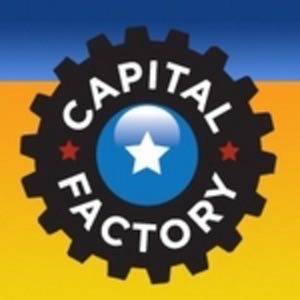We spoke recently with Joshua Baer and Bryan Menell of Capital Factory, a technology incubator/accelerator based in Austin, Texas. Capital Factory puts on an intense 10-week summer program that gives participating startup companies up to $20,000 in cash, more than $20,000 in free services, and mentorship from a group of successful entrepreneurs. The program culminates in a demo day when the startups present to investors, the press, and the world. For more on incubators, see our post on Josh Catone.

Incubators are local by nature. So we wanted to find out more about the innovation scene in Austin. We also wanted to get Capital Factory’s take on how the incubator model is changing.
Listen to the Interview
Download the MP3.
Questions and MP3 Guide
If you are an entrepreneur in Austin, take time to listen to the whole interview. Get to know these guys before you meet them. For everybody else, here follows a quick summary.
Question:: Do you see different types of startups in Austin compared to the ones in the Valley?
Skip to 2:18 in MP3.
Summary: This is defined by the success stories in Austin because that is where the mentors and angels mostly come from. Dell is huge and is a nice mix of tech and consumer. Austin also has enterprise vendors such as Trilogy and Vignette, and some successes in gaming.
Question:: What advantages and disadvantages does a venture starting out in Austin have?
Skip to 5:20 in MP3.
Summary: Advantage: cost. It costs less to start in Austin than in the Valley. But unlike, say, India, it still operates in the biggest market (the US).
Perceived disadvantage: harder to raise capital. That is changing, and Capital Factory is one of the reasons, less because of the small amounts of capital it provides than because of the bridge it has become to the capital sources in Austin.
Question:: What does a modern incubator do? How is this different from what incubators did in the dot-com era?
Skip to 7:30 in MP3.
Summary: Because of the 10 times reduction in costs to start a Web venture, the issue is less about cash (which is all that those earlier incubators provided) than about access to the people who help with execution. Joshua and Bryan seemed to shy away from using the word “incubator” because it got a bad rep in the dot-com era, and preferred the term “accelerator.”
Question:: What market segments excite you today?
Skip to 10:45 in MP3.
Summary: Niche markets in which the entrepreneurs have superb domain skills. Capital Factory looks for capital-efficient companies with a clear path to early profitability.
Question:: What is the single most important characteristic you look for in an entrepreneur?
Skip to 14:50 in MP3.
Summary: Passion.
Why Talk to Capital Factory?
If you are talking to the company to get $20,000, you’re missing the point. The reason to talk to Capital Factory is to get access to its team. Not only can these folks help you get on the right track, but when you are on the right track they can open any door you need in Austin.
Recent Investments
Capital Factory announced these investments in April:
- Cubit Planning: environmental reports at the click of a button.
- FamiGo: mobile games that bring the family together.
- Homstie: person-to-person marketplace for storage space.
- Hourville: marketplace for services by the hour.
- petzMD: website for pet health, from A to Z.
Feedback
What is your take on the innovation scene in Austin?
Do you have a good incubator/accelerator where you’re based?
Listen to the Interview
Download the MP3.

















